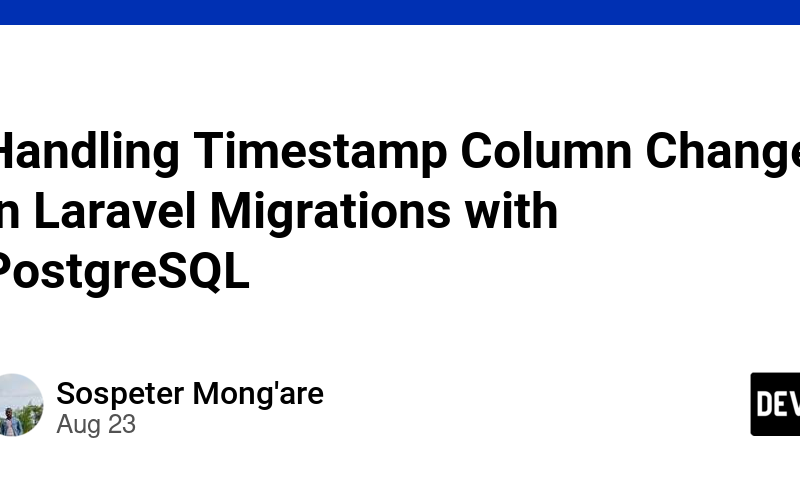When working with Laravel migrations, developers may encounter issues when trying to change a column’s type to timestamp, especially in a PostgreSQL environment. The problem arises from Laravel’s reliance on Doctrine DBAL, which doesn’t natively support the timestamp type.
The Problem:
When using the change() method in Laravel migrations, a DoctrineDBALException may be thrown, stating that the timestamp type is unknown. This is because Doctrine DBAL does not support certain native database types, like timestamp, out of the box.
The Workaround:
To address this issue, a practical solution is to avoid using change() and instead, drop the column and recreate it with the desired type.
Step-by-Step Migration:
-
Drop the Existing Columns:
First, remove the columns that need to be converted totimestamp:
Schema::table('business_profile_document_uploads', function (Blueprint $table) {
$table->dropColumn('date_requested');
$table->dropColumn('date_issued');
});
-
Recreate the Columns with the
timestampType:
After dropping the columns, you can safely recreate them astimestamptypes:
Schema::table('business_profile_document_uploads', function (Blueprint $table) {
$table->timestamp('date_requested')->nullable();
$table->timestamp('date_issued')->nullable();
});
-
Rollback Procedure:
To revert these changes, drop thetimestampcolumns and recreate them asdatetypes:
Schema::table('business_profile_document_uploads', function (Blueprint $table) {
$table->dropColumn('date_requested');
$table->dropColumn('date_issued');
});
Schema::table('business_profile_document_uploads', function (Blueprint $table) {
$table->date('date_requested')->nullable();
$table->date('date_issued')->nullable();
});
Conclusion:
By using this approach, Laravel developers can avoid the limitations of Doctrine DBAL when dealing with column type changes, ensuring that migrations work smoothly across different database systems like PostgreSQL. This method provides a clear, maintainable way to handle column type changes without encountering runtime exceptions.
Source link
lol

